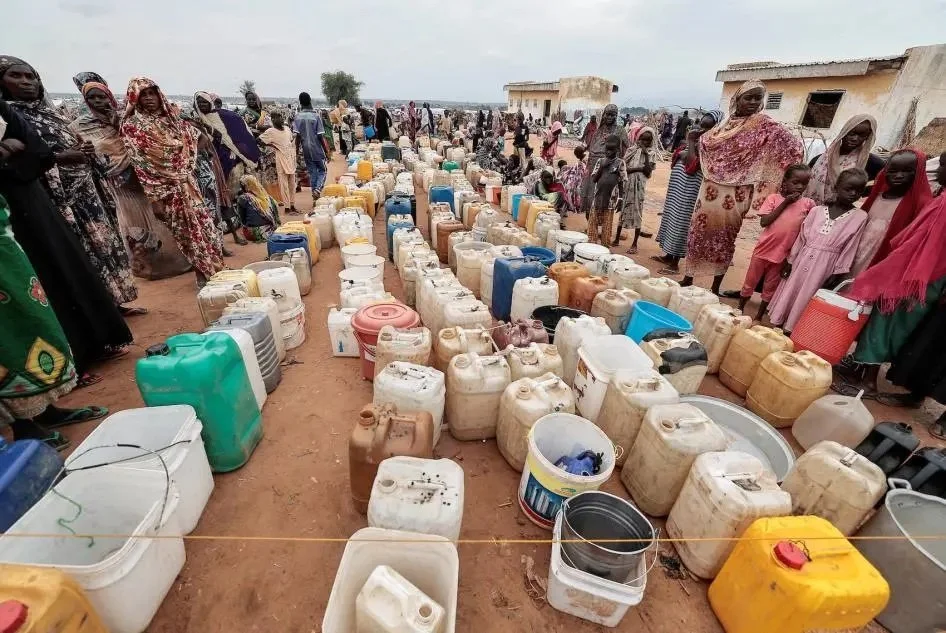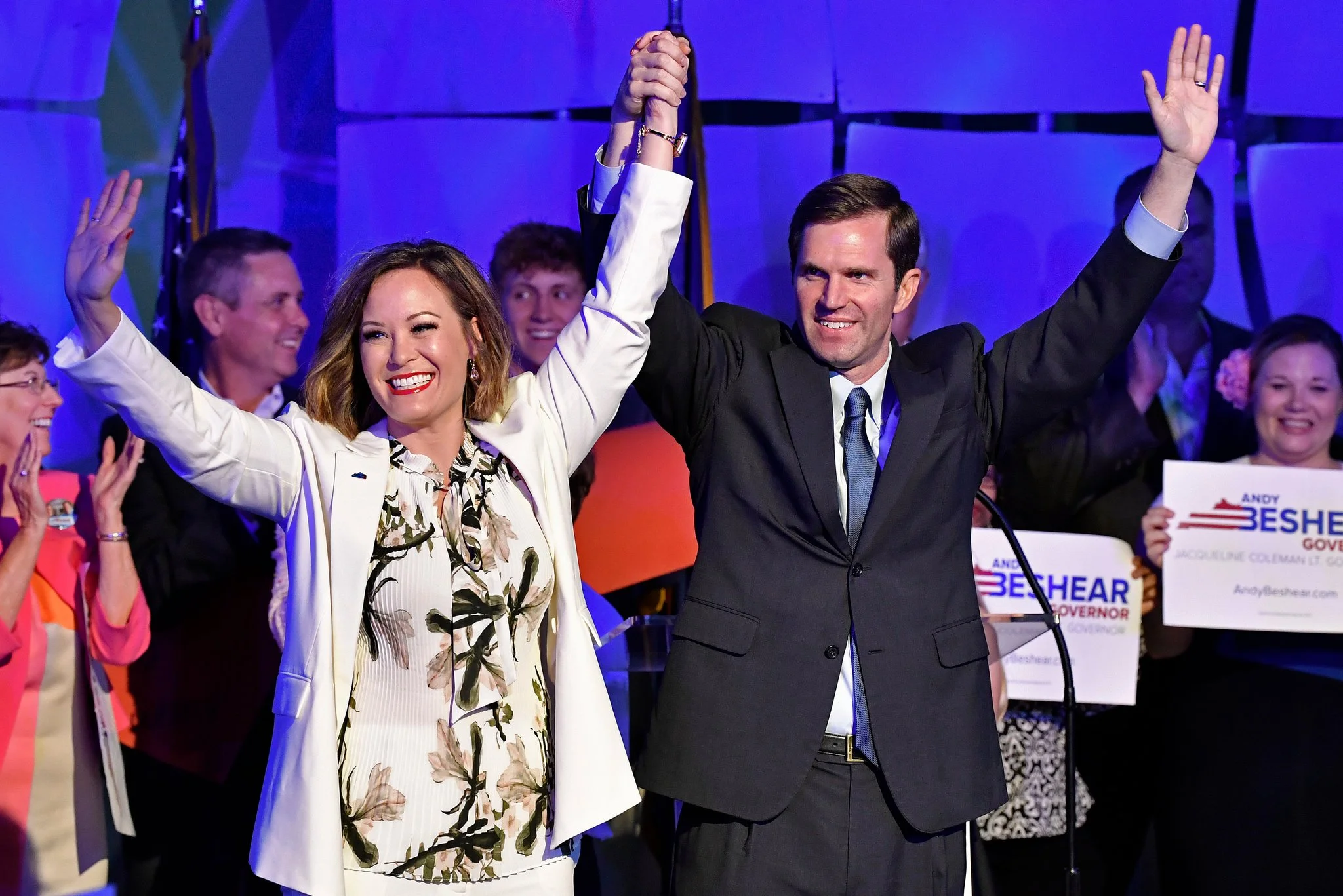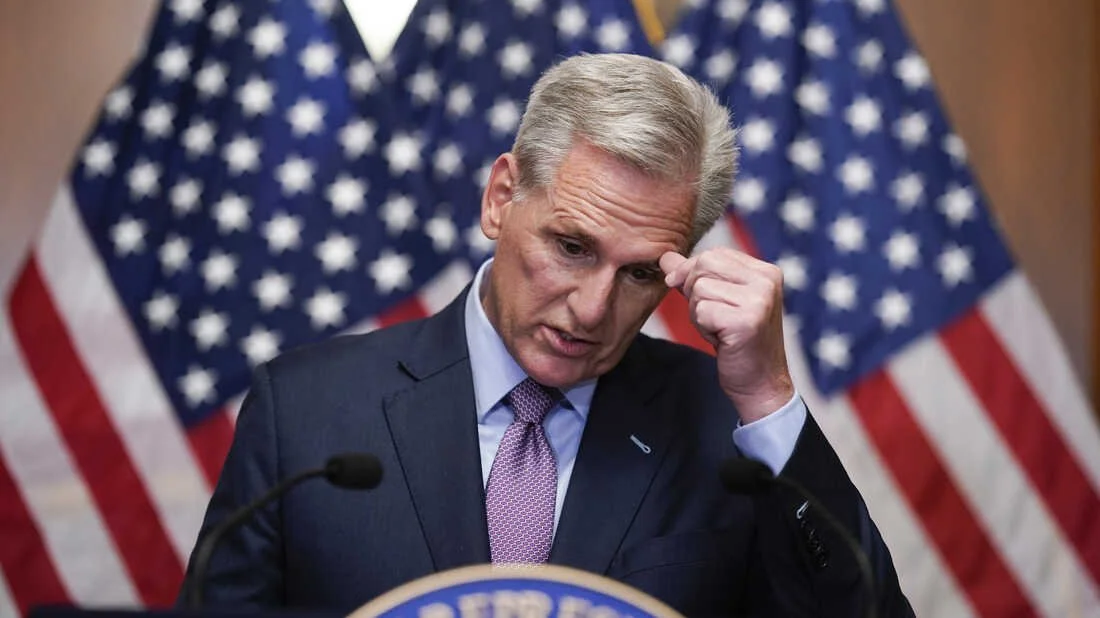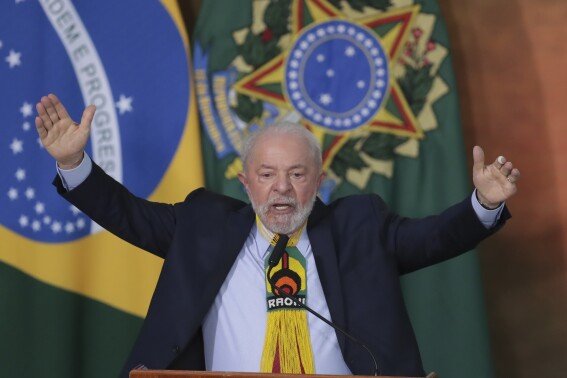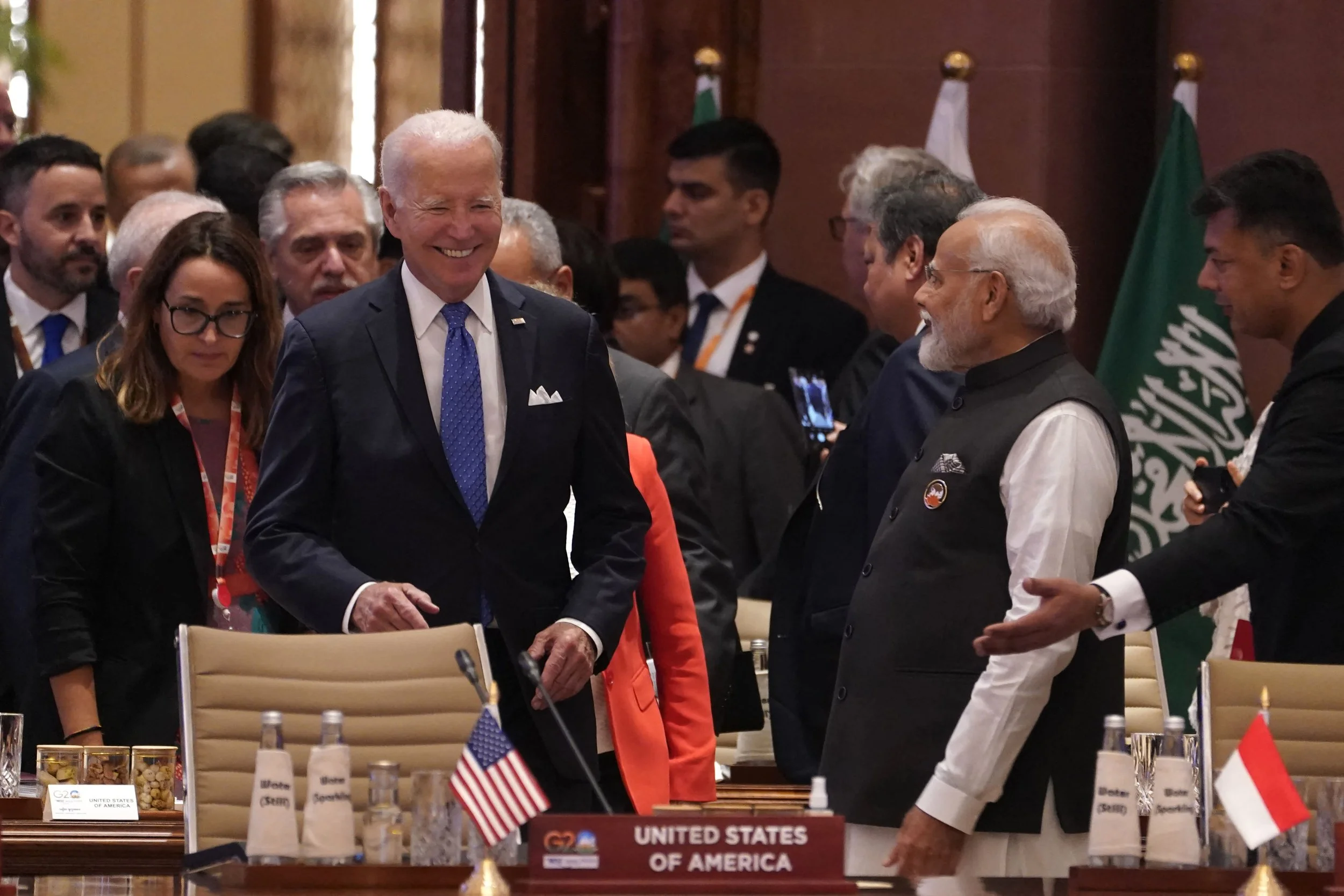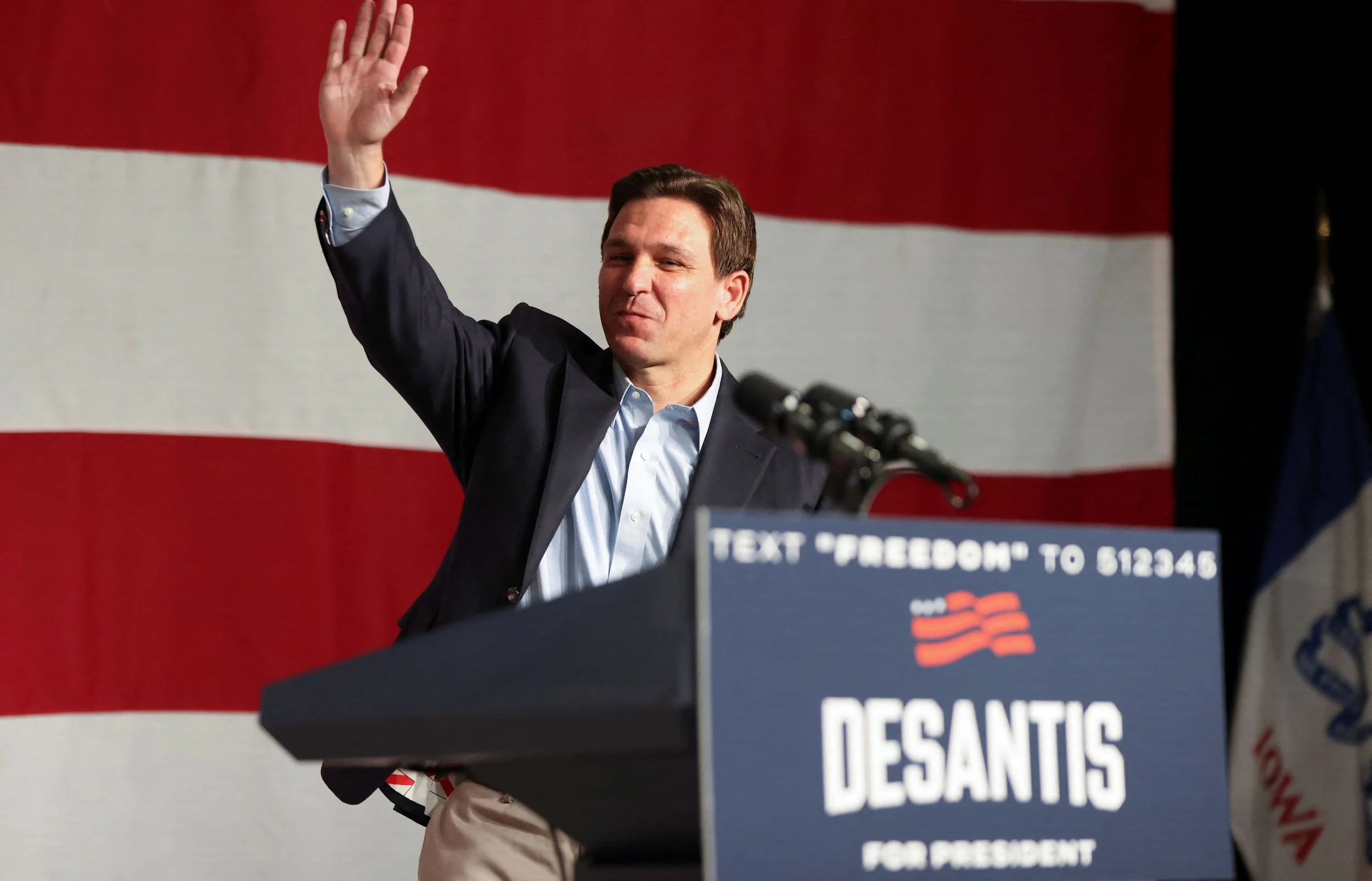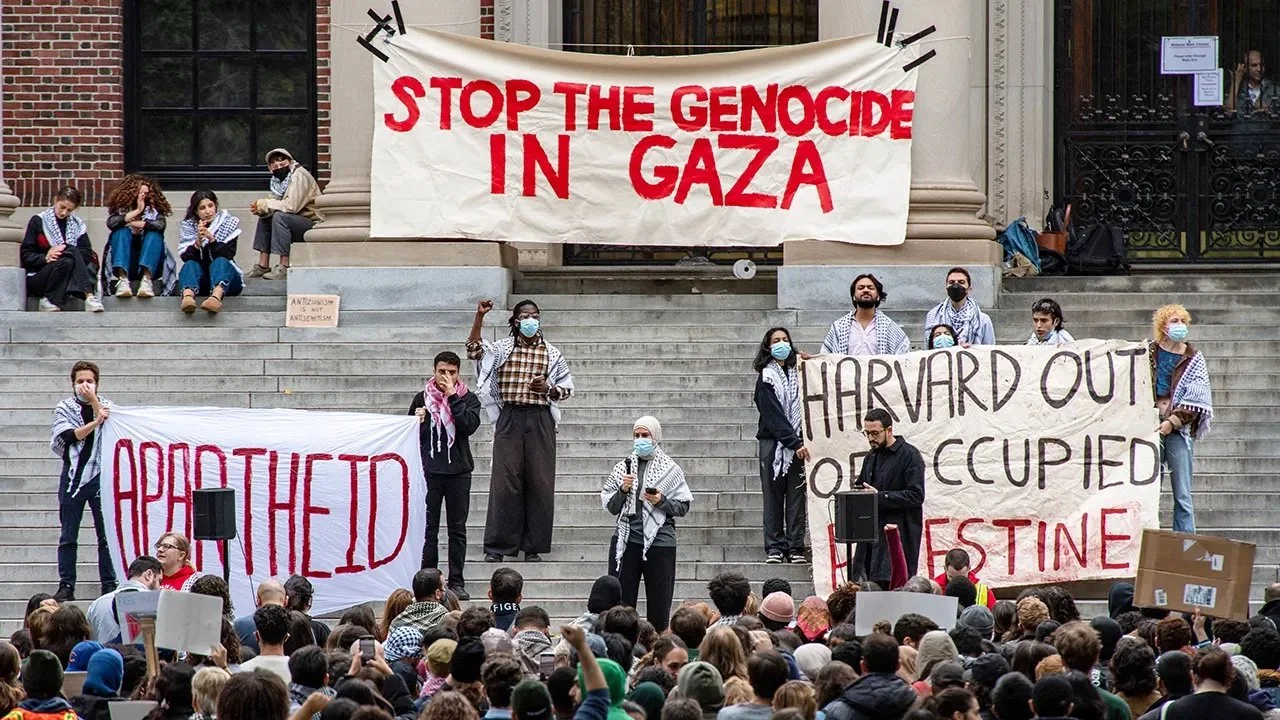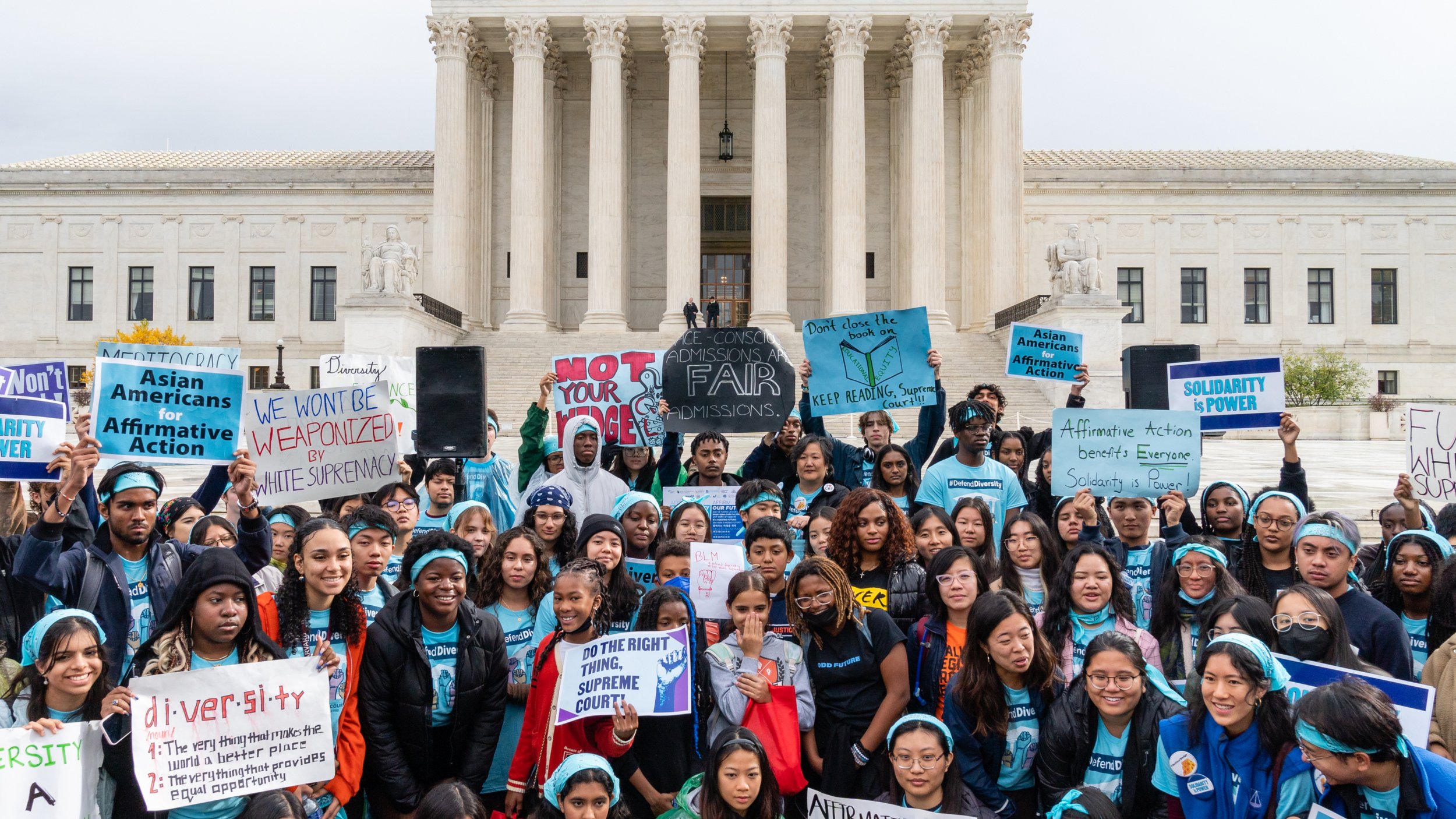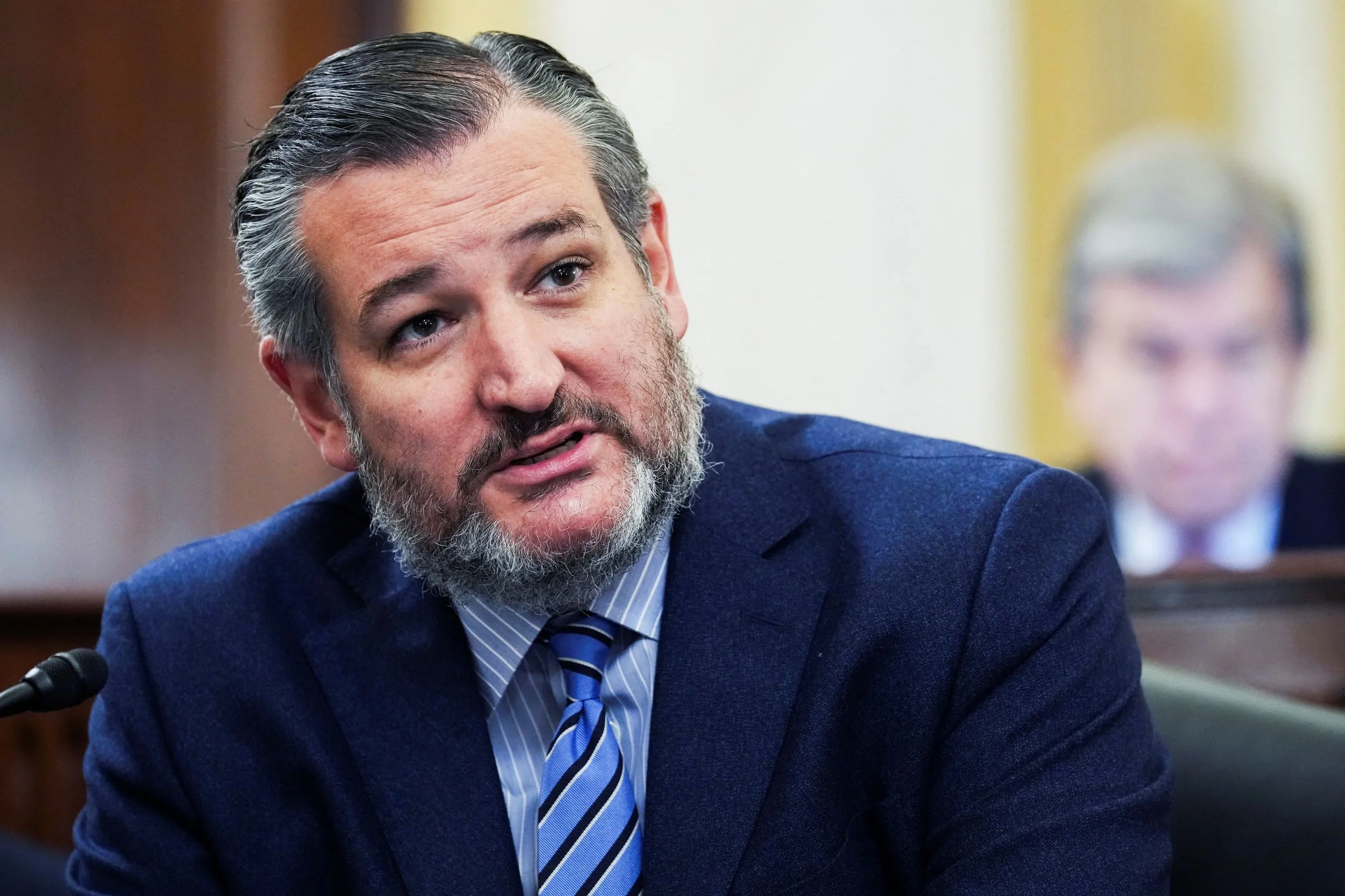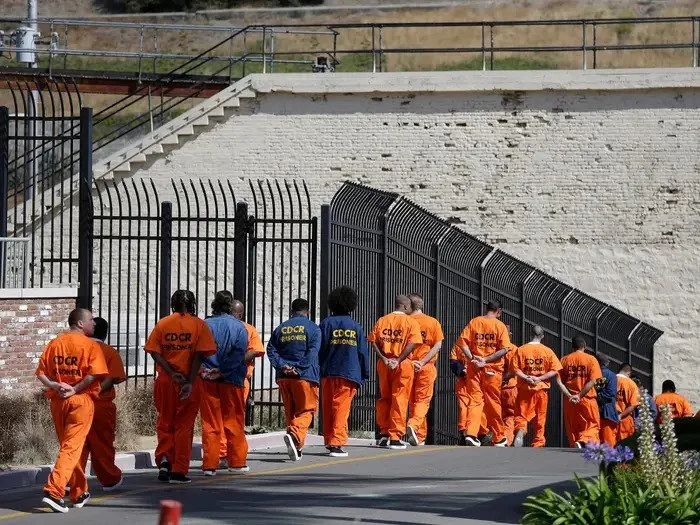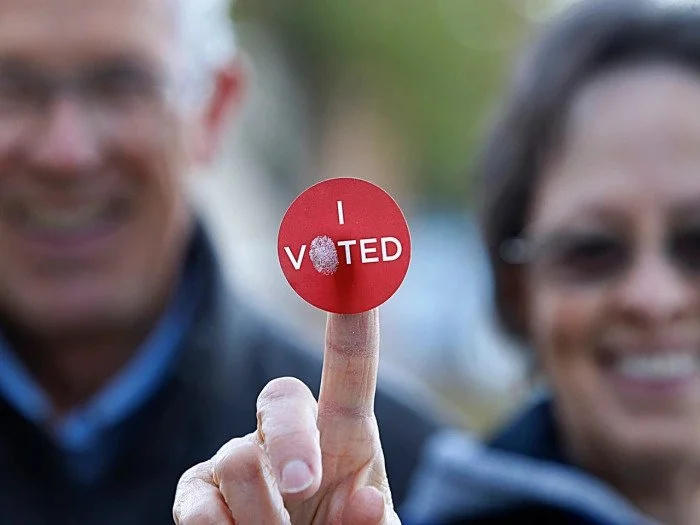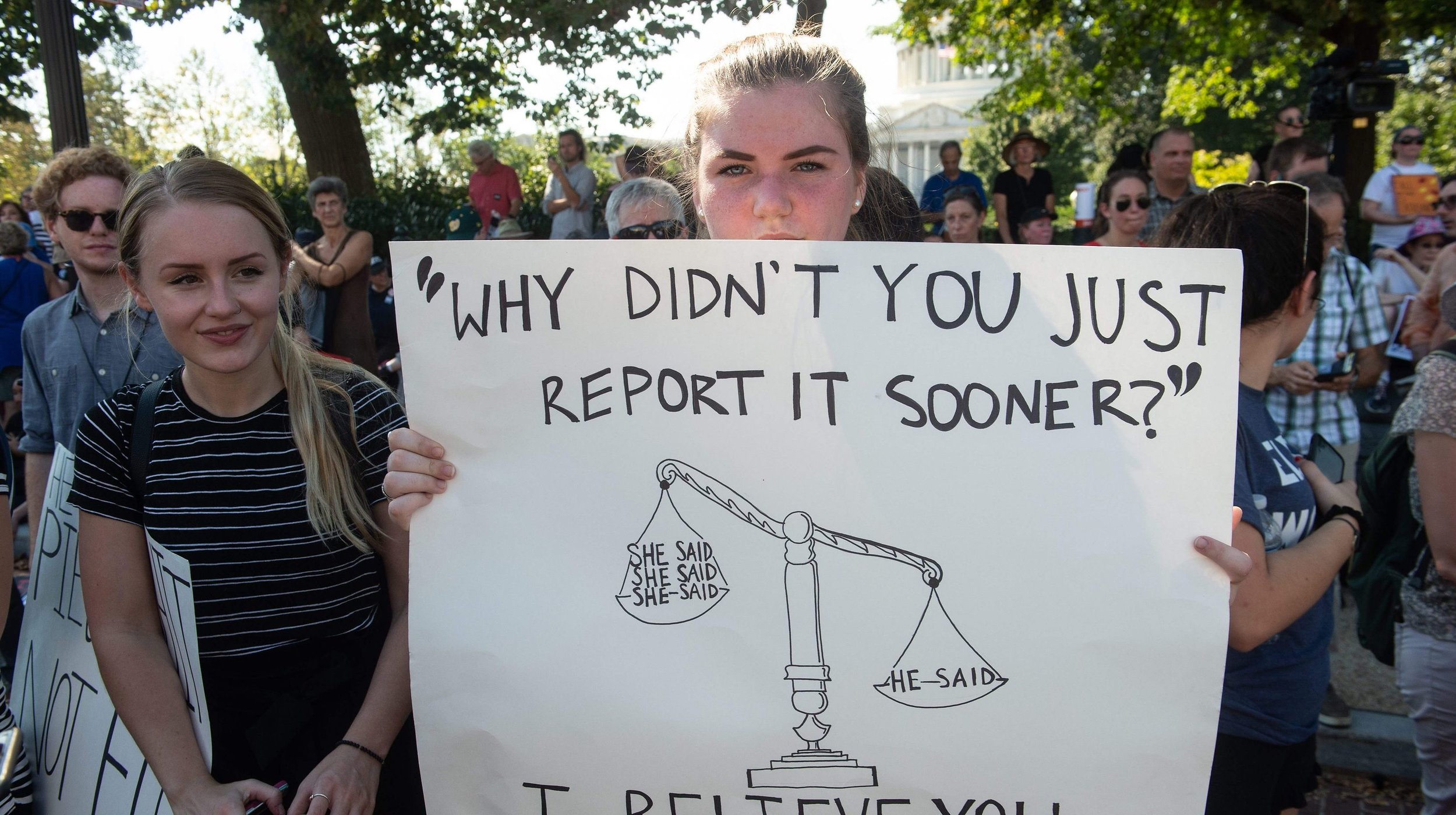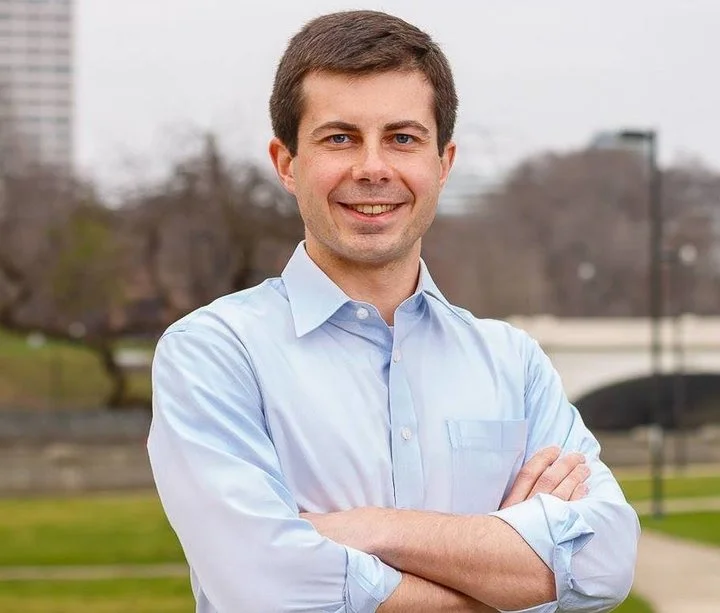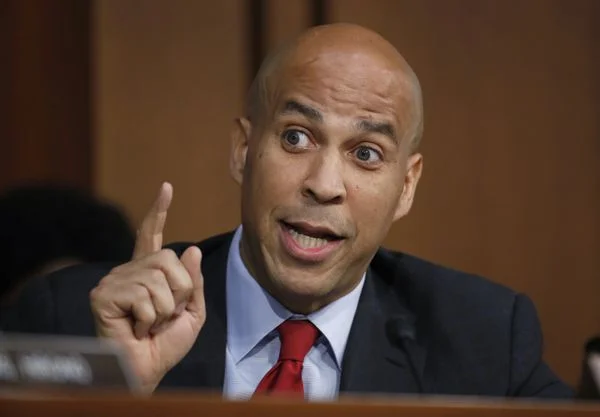current Columns
Read perspectives from Georgetown University students on some of the most pressing themes in the current political landscape.
JAMes Long: Tracking the Trump Trifecta
Despite initial concerns about the viability of their nominations, some of President Donald Trump’s most controversial cabinet picks were able to garner enough support to clear the bar for confirmation. Pete Hegseth, Robert F. Kennedy Jr., and Tulsi Gabbard were each confirmed with minimal Republican defection, despite having been thoroughly questioned about matters from alcohol abuse to vaccine conspiracies.
On January 21, a panel of Republican strategists outlined how Republicans’ trifecta in the federal government could drastically alter the American political landscape during a conversation titled “What to Expect from a GOP Trifecta,” hosted by the Georgetown Institute of Politics and Public Service (GU Politics).
Ayushi Das
Retired Columns
Lainey Lyle: Activate that
Georgetown’s New Student Orientation (NSO) is known for piles of lecturers, the chance to meet all 1,873 of one’s fellow classmates, and being imbued with details about Georgetown’s extensive and complicated past. But it wasn’t like this until recently–and may not be for long.
Sara Medina: Global Health and Political Instability
Ukraine has suffered from a severe humanitarian crisis worsened by targeted attacks on healthcare since Russia’s invasion in February 2022. Coupled with lasting effects of the COVID-19 pandemic, the war has devastated the mental and physical wellbeing of healthcare workers.
Identified as a global emergency by the World Health Organization, the uncontrolled outbreak of mpox in Congo and its neighboring countries is a product of Congo’s persistent political violence and policies promoting discrimination against groups most at risk of contracting the virus.
Following the recent suspension of polio vaccination campaigns in Afghanistan by the Taliban and the attacks on polio workers in Pakistan, understanding the struggle of these two countries to eradicate this potentially fatal disease is more critical than ever. Their sociopolitical conditions have fostered widespread resentment towards the polio eradication effort, making it difficult to achieve adequate vaccine coverage.
Allister Adair: Faith in Fallacy
In August, after a chaotic presidential campaign devoted to attacking former President Trump, the Biden Administration, the two-party system, the media, and nearly everything else, Robert F. Kennedy Jr. unexpectedly endorsed the former President. But just how unexpected was it?
Ayushi Das: The Artist as Activist
It’s been a few months since the 2024 election, when Americans elected Donald J. Trump into office for his second term. His re-election has brought forth conversations in left-leaning circles on what this means for minority groups moving forward, with a new emphasis on community organization and collective action.
Halloween may have come to an end but something much scarier is approaching…the outcomes of the 2024 election. If October was the season of scary movies, then November is the season of political tension and events from the last four years culminating in one final decision.
From TikTok jokes to real-life convictions, “Alpha Male” podcasts have recently come to dominate the pop culture scene. Beginning with the rise of Andrew Tate, there has been a surge of hyper-masculine, often hyper-conservative men with microphones. Their podcasts, filled with dangerous, toxic masculinity, are not simply the spewing of angered men but also reflect the conservatism of the new generation.
— Taylor Moses
After decades of remaining in the shadow of their male counterparts, women’s college basketball in the 2023-2024 season took the media by storm. At the middle of the storm of press, TikToks, and fan pages were major names such Caitlin Clark and Angel Reese. There came a wave of racial politics alongside progress–specifically in the Final Four game.
— Taylor Moses
From the Super Bowl to sold-out concerts, Taylor Swift has dominated stadiums across the country and world. After years in the spotlight, though, it is inarguable that Swift’s celebrity status has reached an all-time high. However, with this newfound virality has come a red wave of far-right conspiracy theories regarding her and the upcoming 2024 presidential election.
— Taylor Moses
The United Nations has recognized the current humanitarian crisis in Sudan amidst its ongoing civil war as the “world’s largest hunger crisis” and the “worst displacement crisis in the world.” Escalating political violence in Sudan over the past year has resulted in increased levels of food insecurity and communicable disease, and there are few functional health facilities left standing
— Sara Medina
Heightened gang violence, unstable governance, and natural disasters have intensified the health crisis in Haiti, exacerbating inequalities in health care access amidst an ongoing cholera outbreak. Cost-effective, intersectoral interventions to improve health care services as well as water, sanitation, and hygiene must be prioritized in Haiti to avert the threat of an even greater public health crisis.
— Sara Medina
— Sara Medina
Israeli strikes on hospitals in the Gaza Strip have exacerbated the instability of the Gazan health system amidst civilian casualties and increasing rates of infectious disease and malnutrition, underscoring the direct impact of the ongoing war on civilian health and Israel’s violation of international humanitarian law.
— Sara Medina
We experienced the 2023 off-year election cycle. The cycle included gubernatorial and state legislative elections, as well as mayoral races and a variety of other local offices. The results represent major victories for particular interest groups and can provide crucial insight into next year’s national elections.
— Calla O’Neil
The chaos in Congress as Republicans scrambled to find a replacement for House speaker Kevin McCarthy may bleed into the 2024 Congressional election cycle, as recent polls show its impact on voters.
— Calla O’Neil
With proposed and passed anti-LGBTQ legislation rapidly increasing, the 2024 election season marks a pivotal opportunity to boost diversity in the U.S. Senate and House of Representatives.
— Calla O’Neil
Partisan gerrymandering across the country is quickly shifting the political landscape for 2024, with the current House of Representatives nearly evenly divided. However, partisan gerrymandering that survives court battles will leave a lasting legacy beyond that already enshrined by the 2022 election.
— Aamir Jamil
This article (part I) covers the court battles that will shape 2024. Ongoing litigation in Wisconsin and New York could add Democratic seats in the House of Representatives while cases in North Carolina and Ohio are expected to strengthen Republicans.
— Aamir Jamil
The Supreme Court ruled this year that Alabama’s congressional map diluted the political power of African Americans earlier this year in Allen v. Milligan, averting a disastrous gutting of Section 2 of the Voting Rights Act of 1965 that would kill its last enforcement mechanisms. Southern states, which were forced to cede voting rights and political power to African Americans after the act’s implementation, still struggle to follow the law. After Milligan, a cascade of court cases are popping up throughout the South with important ramifications for 2024 House elections and African American voting power.
— Aamir Jamil
When Luiz Inácio “Lula” da Silva defeated right-wing populist incumbent Jair Bolsonaro in the 2022 Brazilian presidential election, his victory was touted by many as a “return to normality” for Latin America’s most populous nation. But on a policy level, Lula’s government has proved uninterested in simply maintaining the status quo, instead embracing wholesale economic reforms and investments to fundamentally transform Brazil’s economy.
— Jiyon Chatterjee
African governments are turning to innovative solutions to create future opportunities for their young workers. Specifically, Kenya has embraced the idea of establishing “smart cities” as development panaceas: modernized urban centers that harness technology to foster economic efficiency, sustainability, and growth. However, these cities are encountering political obstacles.
— Jiyon Chatterjee
In a world of high-stakes international conferences, the recent G20 summit hosted in New Delhi on September 9th may seem siloed from the daily concerns of ordinary people. But beneath the diplomatic veneer, the summit symbolized a pivotal shift in global economics with profound implications for workers across borders, driven by the unlikely partnership of President Joe Biden and Prime Minister Narendra Modi.
— Jiyon Chatterjee
As President Biden’s approval rating continues to plummet, the 2024 Republican presidential primary continues to develop, with Nikki Haley and Ron DeSantis emerging as the main opposition to former President Donald Trump. Biden’s unpopularity not only presents a prominent opportunity for these candidates but also raises some challenges.
— Patrick Emerson
In a GOP primary field dominated by former President Donald Trump, Florida Governor Ron DeSantis faces a challenging path to secure the GOP nomination. Yet, DeSantis remains resolute, emphasizing that a significant portion of the electorate remains undecided and strategically positioning himself to sway these “on the fence” voters.
— Patrick Emerson
News of Harvard’s student-released letter focusing on the October 7 Hamas attacks has quickly circulated around the country. The anonymous publication has been heavily criticized by those inside and outside the school alike. While freedom of speech is a fundamental human right, Harvard could have done more to denounce the letter.
— Brian Kaye
It’s been over two months since the controversial removal of affirmative action, effectively shattering the objective of promoting diversity and inclusivity on college campuses around the country. Nevertheless, the elimination of affirmative action sets the stage for new systems encouraging diversity in student bodies to blossom — systems possibly even more effective in promoting a healthy and diverse campus community than affirmative action ever was.
— Brian Kaye
ARCHIVED COLUMNS
Previous columns with student commentary on politics, in the United States and beyond.
Dustin Garza: BIG PICTURE POLITICS
65% of Americans today say most politicians are corrupt. In response to this growing concern, the Biden Administration has named fighting corruption as a core U.S. national security interest. There is no doubt that corruption can destroy a government from within, but does corruption pose a serious threat to the United States today?
— Dustin Garza
The Supreme Court is currently undergoing a crisis of legitimacy that undermines American government. Justices today are more interested in furthering their own political agendas rather than providing sound legal interpretations of our Constitution, which has eroded trust in the U.S. legal system.
— Dustin Garza
Administrative law judges are not an inevitable or necessary part of the federal government. However, at this point they play a crucial role in holding the federal government accountable. How we decide who they are, what procedural rules proceedings before them follow, and what power they have to rectify decisions are all important in shaping what the federal government does and does not do.
— Jacob Brown
The U.S. Constitution shapes our society for better and for worse. It is the document from which, at least in theory, the power of the federal government flows. As a result, what it contains is of profound importance to us all, as is how we change what it contains.
— Jacob Brown
We are in a state of national emergency! Or, more precisely, 42 separate states of national emergency. States of national emergency have become ubiquitous in the modern era. With the use of national emergency declarations to garner additional authority so common in the modern era, it is worth understanding just how they work and what oversight over them there is.
— Jacob Brown
Simply put, algorithms are messy. They are complex, and I would argue that they are a little too complex for Supreme Court Justices to understand. As Justice Kagan herself admits, “these are not like the nine greatest experts on the Internet.” Therein lies the root of the problem, regardless of which way the court rules. You have to ask yourself why the court is even making these technical decisions in the first place. — Siona Mondal
Switzerland has long been a neutral country on the world stage. Perceiving its neighboring countries as enemies rather than allies, Switzerland has a comprehensive military defense system to isolate itself in the heartland of Europe. However, with the unfolding of the Russia-Ukraine war, the longstanding Swiss neutrality seems challenged.
— Zoey Zhang
Congratulations to the millions of people around the world who discovered that they are airline pilots this week after holding on to that wing pin pilots used to give to children. The new pilots have Georgia senate candidate Hershel Walker to thank for revealing that honorary badges can be used professionally, when he held a fake police badge up at a recent Senate debate against Democratic opponent Sen. Raphael Warnock.
— Kathryn Chavez
The Spring Break high is officially over and it's full steam ahead till the end of the semester. The cherry blossoms are in full bloom, and smelly tweens once again are flocking to DC to experience the nation's capital. While there were sadly no political tweets about the slap heard around the world at the Oscars, here are some of the best social media posts from the last few weeks.
— Kathryn Chavez
One of the joys of holidays are the varieties of posts, as political digital media has no boundaries. Some of these Valentines posts read like teenagers gushing about their boyfriend of two months; others reminded us that love can last a lifetime. Here are some of the best and worst Valentine's Day posts of 2022.
— Kathryn Chavez
This article is the one that slipped through the cracks. It was half-written, with the links to some posts just chilling on the word doc for weeks. But, some of these moments from within the blurry haze of finals season are too good not to share. So I give you a blast from the not-so-far past.
— Kathryn Chavez
The new movie Tick, Tick … Boom! detailing Jonathan Larson’s life should challenge its viewers to live more full personal lives and demand more inspired leadership from elected officials, especially as democracy and the country find themselves in perilous territory.
— Kathryn Chavez
With the temperature dropping, and dubious Virginia and New Jersey elections takes following, Kathryn Chavez takes time to highlight some of the best moments on social media over the last few weeks.
— Kathryn Chavez
It’s all fun and games until senators start posting bad food pics. Here are the best and worst digital and social media moments from the past week!
— Kathryn Chavez
Here are some of the best and worst political digital moments from the past two weeks (warning: these will make you laugh).
— Kathryn Chavez
The Biden administration and congressional Democrats continue to push legislation to increase funding for infrastructure, climate and social programs. One of the most prominent— and controversial— of these efforts is the Build Back Better bill. Let’s break it down.
— Melody Stainbrook
Ignoring the push by Republican lawmakers to pass legislation restricting abortion jeopardizes women’s rights and demands discussion, debate and pushback.
— Melody Stainbrook
After 20 years of war in Afghanistan, the Extending Government Funding and Delivering Emergency Assistance Act would expand aid to Afghanistan and address the refugee crisis.
— Melody Stainbrook
MELODY STAINBROOK— On January 20, 2021, newly-elected President Joe Biden issued an executive order to prevent discrimination based on gender identity and sexual orientation. The directive aims to deter transgender discrimination in the workplace and at school. While the executive order was applauded by LGBTQ+ advocates, who saw the order as a considerable advancement in LGBTQ+ rights, this new legislation has been met with backlash and recent attacks on these LGBTQ+ rights.
Passing the Justice is Not for Sale Act would end decades of private companies operating prisons. After years of profiting off of a corrupt system that targets marginalized groups, this bill is an opportunity for justice.
— Melody Stainbrook
The Preserve American History Act aims to reinstate the widely criticized 1776 Commission. As lawmakers decide how young minds will view our nation’s past, we must remind them that only through truth can America begin to rectify systematic inequalities.
— Melody Stainbrook
As more and more Americans express doubt in the ethics of our elected officials, Congress is seeking to regain public trust through increasing transparency and shifting accountability to government institutions and agencies.
If you have heard a lot about QAnon these past few weeks you are not alone. At first glance, the anti-democrat, pro-Trump conspiracy appears to be yet another outlandish but laughable internet conspiracy group. However, QAnon’s following continues to grow at an alarming rate. Strengthened by the failure of high-level Republicans to condemn it, QAnon is becoming a dangerous movement that fosters violence, purveys misinformation, and capitalizes on political polarization and fear.
Introducing, “These Bills Matter,” Melody Stainbrook dives into two GOP sponsored House bills and the effects they would have on Planned Parenthood and abortion access for women nationwide.
— Melody Stainbrook
Primary season in Texas has just come to a close and the results are in: a loss for the people of Texas, and a loss for democracy. The main story from the March primaries is as follows: a shocking number of mail-in ballots rejected due to the new voting regulations encased in Senate Bill 1 (SB1), a newly signed bill that mandates confusing ID requirements and bans drive through voting, among other restrictive regulations.
— Varshini Regupathy
The GENECIS clinic had 500 patients in 2021 and serves transgender youth from across Texas and even some other states. Unfortunately, the GENECIS clinic recently closed its doors after facing extreme political pressure, and as a result, transgender youth in Texas have been left severely underserved.
— Varshini Regupathy
Now, the Democrats are licking their wounds and gearing up once again for 2022. Their strategy? Give it all they’ve got. Here are 4 things the Democrats have to do to make up some ground in these midterms.
— Varshini Regupathy
Redistricting in Texas has arrived, bringing with it horrifically gerrymandered maps all across the board. The new district maps, recently approved by Governor Abbott, all solidify the Republicans’ grip on the state despite significant demographic changes.
— Varshini Regupathy
Texas Republicans have crossed a line with their latest anti-abortion measures and will likely suffer the consequences at the ballot box.
— Varshini Regupathy
How does Amazon make its money? This question might seem like it would be simple to answer, but it is widely misunderstood. For years, business journalists and analysts have held that Amazon Web Services (AWS) is the real profit driver behind the tech conglomerate. However, contrary to this narrative, Amazon’s most profitable business is Amazon Marketplace. Why is the mainstream belief wrong? Amazon has constructed this misconception through financial accounting techniques which mask not just online shopping’s profitability, but also the damage Amazon does to third party sellers.
— Neil Tracey
As prices continue to rise, there is no bigger domestic issue than inflation. Last month, inflation soared to 7.5% – the highest it has been since 1982. Rising inflation rates is not an abstract economic concept but a real problem that makes it harder for the poorest members of our society to buy food, clothing, and other essential products they need. While it is true that supply-chain issues have helped contribute to inflation, what has made our supply chain system so weak?
— Neil Tracey
A recent antitrust class-action against Georgetown and sixteen other top Universities claims every Georgetown student's deepest suspicion: Georgetown isn’t really need-blind. The suit alleges that for the past two decades, sixteen top universities engaged in an illicit price fixing cartel that resulted in higher tuition for over 170,000 students.
— Neil Tracey
The recent labor shortage has given employees new power to demand better working conditions and new wages. The increased pressure on employers has led to a moderate increase in wages. In order to sustain this pro-worker movement in the economy, it is important to understand why wages were stagnant until now, and how they might become stagnant once more. To do this, I plan to answer a very simple, but timely, question: what does antitrust enforcement mean for labor markets? What does antitrust enforcement mean for labor markets?
— Neil Tracey
This week marks roughly a month since former Facebook executive and data scientist Frances Haugen disclosed thousands of pages of insider documents about Facebook’s inner workings to the SEC and later to Congress. These documents dubbed the "Facebook Papers,” detail Facebook’s inner conflict over combating misinformation on its platform. The Facebook papers reveal that Facebook is well aware of the extent to which their platform promotes misinformation. A new idea is needed to understand this new order: surveillance capitalism.
— Neil Tracey
As private equity firms expand their control over the nursing home market, thousands of vulnerable elderly Americans are being placed at risk of receiving subpar treatment and care, especially during a pandemic.
— Neil Tracey
The Department of Justice’s potential lawsuit against Google would mark the fifth major antitrust action against the tech giant in recent years, challenging Google's role as the top player in the multi-billion market for digital advertising.
— Neil Tracey
During the pandemic-driven recession, women had a significantly higher chance of leaving the workforce. These numbers not only reveal vulnerabilities in female-dominated industries, but also the disproportionate share of childcare and household chores that women are expected to take on. In order to encourage women’s entry and rise in their career fields
— Angela Yu
President Joe Biden and the Democratic party are faced with a historical storm of events as a world barely emerging from a pandemic is now reckoning with a war in Europe. These volatile global events have spurred an alarming rise in inflation, causing many Americans to feel as if Biden has fallen short of his promise to recover the economy.
— Angela Yu
Biden’s infrastructure plan outlines a total of $111 billion for water infrastructure, but America needs a cultural shift in our plastic water bottle consumption to enable equal access to clean drinking water.
— Daria Farman-Farmaian
At home and abroad, women are disproportionately vulnerable to the impacts of climate change. To combat climate change effectively, leaders must make gender equality a priority in climate policy.
— Daria Farman-Farmaian
The storm that uprooted my grandma’s life left millions of other Texans without electricity, power, heat and water. There have been hundreds of reported cases of carbon monoxide poisoning as people use generators for heat. People have lost their lives and their homes.
— Daria Farman-Farmaian
In order to create a stronger economy, foster more resilient American communities, and stop the most devastating effects of global warming, Biden must remain ambitious with his climate plan.
— Daria Faman-Farmaian
Justice Amy Coney Barrett’s confirmation is bad news for environmental legislation at a moment when it’s needed most. Her perceived neutrality dangerously undermines climate change as a scientific fact,
— Daria Farman-Farmaian
Biden strives to re-establish the U.S. as a climate leader — a task which will require international and domestic cooperation. The U.S. must to restore credibility abroad in order to effectively combat the crisis alongside other nations. — Daria Farman-Farmaian
Traveling taught me to love this world, to want to protect. Yet, in exploring and learning, I know I am destroying what I want to save.
— Daria Farman-Farmaian:
The international community should look to the Great Green Wall project as an example of cooperation between countries to fight against a common enemy: climate change — Daria Farman-Farmaian
Everyone is touched by climate change one way or another, yet it is still the elephant in the room that nobody want's to talk about.
— Daria Farman-Farmaian
In 2020, Ricky Hurtado was the first Latinx Democrat to be elected to the North Carolina General Assembly. Outside of politics, Hurtado is a professor at the University of North Carolina-Chapel Hill and co-founder of LatinxEd, an education initiative helping first-generation college students and immigrant families break down barriers to higher education.
— Robin Huang and Kelvin Doe
Surrounded by controversy, Cawthorn’s meteoric rise signals the enduring nature of Trumpism in the GOP beyond President Trump.
— Robin Huang
While COVID-19 has ravaged the American South, North Carolina has stuck out in this group for its effective handling of the pandemic. With the combination of effective executive leadership and guidance from public health officials, North Carolina has been viewed as a regional leader in COVID-19 response.
— Robin Huang
North Carolina is a looking glass of broader trends in American politics, and must be closely watched to understand the future of the United States. From shifting demographics to bitterly-fought political battles, North Carolina deserves our attention.
— Robin Huang
AC Brake: From Kentucky to DC
Being politically engaged is in style. But why is it so fashionable to be politically engaged now? And is it a style here to stay?
In some more conservative parts of the country, 2018 has been the “Year of the Angry Educator.”
Friday marks one week since Dr. Christine Blasey Ford and Judge Brett Kavanaugh testified in front of the Senate Judiciary Committee.
There is a common saying where I’m from that a Kentucky Democrat is a Republican everywhere else… but they also represent a former Democratic stronghold that progressive candidates are fighting to gain back in the 2018 midterms.
A two-term member of the Florida House of Representatives from the Orlando area Rep. Eskamani shares her thoughts on Tallahassee, the Florida Legislative Session and progressive change in Florida.
— Eric Bazail-Eimil
Democratic Rep. Alcee Hastings, died on Tuesday, April 6. Even before his service in Congress, Hastings made many firsts as South Florida’s first Black federal judge, as a founder of Broward County’s Black Bar Association, and as a leading civil rights lawyer working with the NAACP.
— Eric Bazail-Eimil
Florida Governor Ron DeSantis pulled off a public opinion turnaround after Florida became the poster-child of what not to do during a pandemic. With his eyes set on a potential 2024 presidential run, DeSantis has an uphill battle to climb.
— Eric Bazil-Eimil
Florida Agriculture Commissioner Nikki Fried’s recent video sends a clear signal: she will run for higher office and she is not going down easily. Her sharp criticism of Desantis is far from the announcement Floridians expected, but points to her ambitions as only statewide elected Democrat.
— Eric Bazail-Eimil
Today, February 14th, marks the third anniversary of the Marjory Stoneman Douglas High School shooting in Parkland, Florida. Three years later, South Florida is still in shock, mourning, and a fight for accountability and action.
— Eric Bazail-Eimil
Florida’s vaccine roll-out has been a mess under Governor DeSantis’ leadership, with hundreds of senior citizens forced to wait overnight. Ignoring CDC guidance to vaccinate healthcare workers first, Florida is setting itself up for disaster.
— Eric Bazail-Eimil
As the losses stack up, Florida Democrats must resist the urge to give up. Instead, Florida Democrats should invest in the infrastructure they need to build energy and at last get their candidates elected.
— Eric Bazail-Eimil
After losing one key race after another, Terrie Rizzo should resign from her position as Chair of the Florida Democratic Party.
— Eric Bazail-Eimil
Democrats walked into 2020 with a significant series of advantages. As Republicans gain speed and strength, the Democrats are trying to come back from a series of unexpected, and many self-inflicted, wounds.
— Eric Bazail Eimil
Introducing the “Florida Project,” Eric Bazail-Emil gives a deep dive into the wild world of Floridian politics, from QAnon candidates to climate change.
— Eric Bazail Eimil
Aaron Bennett: 2020 watch
Do endorsements really matter? It’s a question that’s been on my mind the last few weeks – and on pundits’ mind for the last few cycles.
Last Sunday marked the end of the first fiscal quarter of the 2020 cycle, giving us the first glimpse at the fundraising totals of all the presidential candidates.
A handful of candidates have laudably rolled out bold, impressive policy proposals in the past few weeks.
Castro is, on paper, exactly the kind of candidate who should be competitive in this race.
We had three big entrants in the 2020 primary over the past two weeks – and here are some brief thoughts on all of them.
On Tuesday, Bernie Sanders jumped back in for another go at the Democratic nomination for president, bringing us to a solid 10 candidates.
Klobuchar has a theory: that a liberal woman from the Midwest is our best shot to beat Trump. I’m not convinced she’s entirely wrong.
Mayor Pete brings something to the presidential race that we haven’t seen since Barack Obama 2008: the next generation.
Welcome, Cory, to the party! Another bleeding heart liberal and passionate progressive joins the ranks – and he’s definitely a heavyweight.
Just this week, a gay man from middle America and an African-American woman from the West Coast joined the field – breaking even more barriers and enriching an already very diverse and talented field.
Sarah Watson: Reimagining Iran in the World Square: میدان نقش جهان
After years of sanctions, draining of funds into the nuclear program, and now the crushing impacts of COVID-19, Iran needs an economic bailout. But this deal with China leaves Iran indentured, or as some Iranians protest, owned by a world power. — Sarah Watson
More and more, Americans are viewing Iran as an enemy to U.S. interests. But there is so much more to the beautiful country of Iran than is captured in the daily headlines of conflict and fear. — Sarah Watson
Aaron Bennett: FOUR Democratic Superstars to Keep Your Eye on in 2018
McBath’s performance in this race is no fluke; she is one of the strongest, most unique candidates running in this cycle.
Max Rose has a bright future in the Democratic Party – despite not being as boldly progressive as the candidates I profiled earlier.
It is impossible to begin this series with anyone other than Beto O’Rourke– the electric youngin’ challenging Ted Cruz for his Senate seat in Texas.














